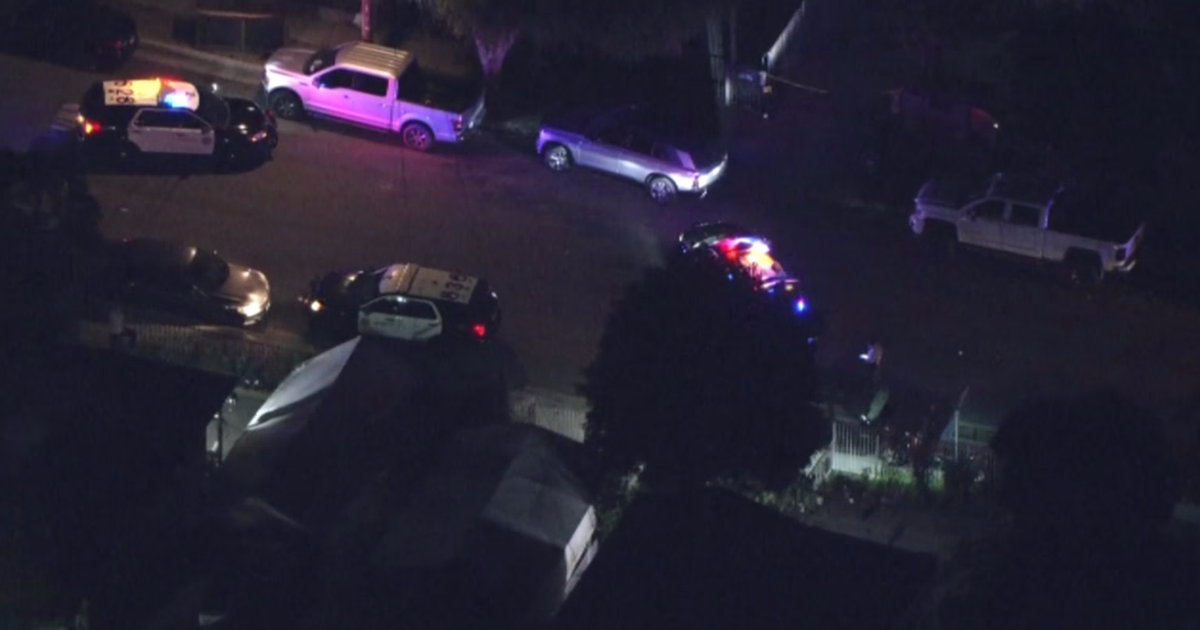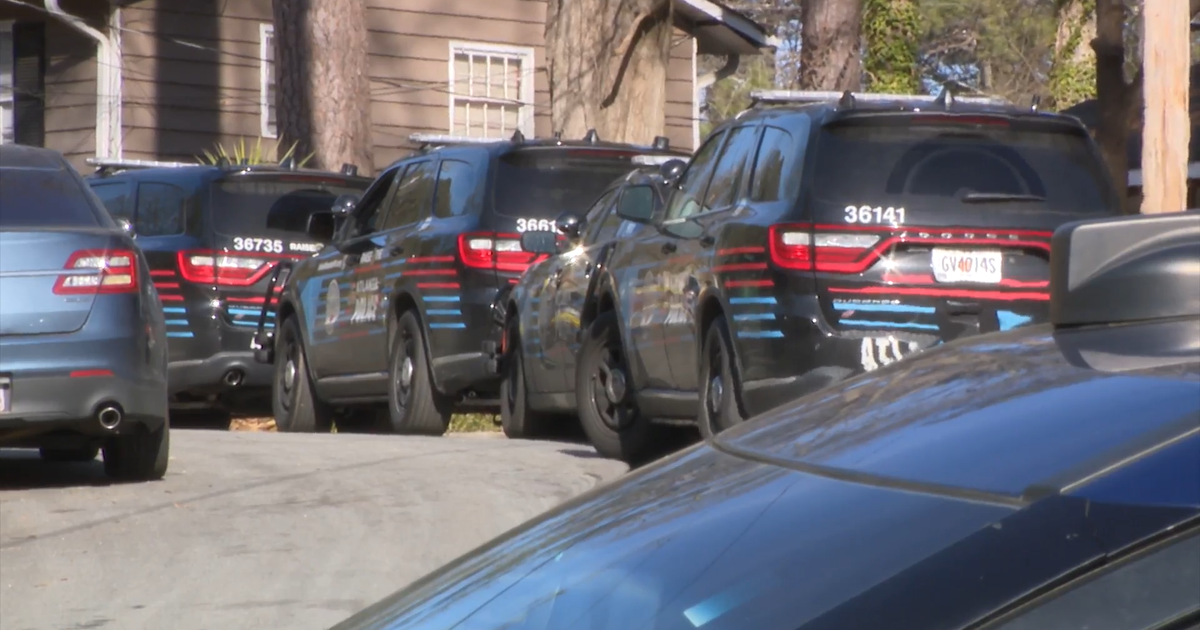'Soul Train' Creator Don Cornelius Dead Of Apparent Suicide
UPDATED 02/02/12 7:27 a.m.
LOS ANGELES (CBS) -- "Soul Train" creator and Chicago native Don Cornelius was found dead of a self-inflicted gunshot wound Wednesday morning in his Los Angeles home.
Cornelius, 75, was found dead around 6 a.m. Chicago time at his home in the Sherman Oaks district, CBS Los Angeles reported.
LISTEN: WBBM Newsradio's Regine Schlesinger reports
Podcast
Law enforcement officials tell CBS Los Angeles that Cornelius was discovered with a gunshot wound to the head. CNN confirmed Wednesday morning that Los Angeles Police reported to the county coroner that Cornelius died of a self-inflicted gunshot wound to the head.
Cornelius was born in Chicago in 1936 and was raised in the Bronzeville neighborhood, where he attended DuSable High School.
As CBS 2's Derrick Blakley reports, Cornelius became the conductor of a TV trip that changed American culture when he launched "Soul Train" in Chicago and it eventually became a national phenomenon.
WVON Radio's Melody Spann said, "Don Cornelius had the vision to take young black America and put them on the world stage."
A former Chicago police officer, Cornelius began his broadcasting career at WVON in the 1960s.
WVON disc jockey Herb Kent, a member of the Radio Hall of Fame, said, "Don wanted to be a DJ, he really wanted to be a DJ, but we didn't have room so they made him a newsman. And he was a very good newsman."
But Cornelius had an idea and WCIU-Channel 26 bought it: an afternoon teen dance show for the African-American community. "Soul Train" quickly became a phenomenon.
When Cornelius convinced the management at Channel 26 – then broadcasting only in black and white – to air his very modest afternoon dance show, little did he know that he would one day set a longevity record for a nationally syndicated television show.
FROM WXRT: 10 ESSENTIAL SOUL TRACKS
Cornelius came a long way from Chicago's South Side to a broadcast that showcased some of the biggest stars in the music business.
Cornelius started "Soul Train" on a shoestring budget as a daily show on black and white TV on Aug. 17, 1970.
The Chi-Lites, the Emotions, and Jerry "Iceman" Butler – now a Cook County commissioner – were among the first guests.
As the show got off the ground, local high school kids came to the WCIU studios in the Board of Trade building to dance to the latest R&B hits.
Chicagoans of a certain age remember it well.
"After school, everybody used to rush home to come see 'Soul Train' in Chicago," one woman said.
The program moved to national syndication in October 1971, and production for the program also moved to Los Angeles at that time.
University of Chicago professor Adam Green says when Cornelius moved the show to Los Angeles, he took Chicago's culture with him.
"In a certain sense, it was insinuating some of the DNA of African-American popular music culture into the broader black community nationally, but also, I think, the broader community at large," he told WBBM Newsradio's John Cody.
LISTEN: WBBM Newsradio's John Cody reports
Podcast
By the time "Soul Train" got to L.A., the music industry had taken notice, and Cornelius was attracting the biggest stars – the Jackson Five, James Brown and the Isley Brothers among them.
"When we started to believe that we had something was the day Aretha Franklin walked in the door," Cornelius said in a recent interview. "We were like, 'OK, it's starting to look bright now.'"
"Soul Train" went on to become the longest-running first-run, nationally syndicated TV show ever. New episodes were produced until 2006.
Cornelius stopped hosting the show in 1993, by which time he was an icon.
"Soul Train" was a sensation, and not just for blacks.
Neal Sabin, executive vice president of WCIU-TV said, "For us, the kids who weren't African-American, it was showing us a whole world that we never saw on televsion before. I think that's what made it really unique."
Also at the event, an honorary street sign emblazoned with Cornelius' name and the "Soul Train" logo was unveiled, in honor of the 40th anniversary of the program. Cornelius was clearly moved.
"This is the biggest thing that has ever happened to me," he said.
And that was quite a statement, considering his long, celebrated career in show business.
Speaking from Florida Wednesday morning, the Rev. Jesse Jackson said he was "stunned" by the news of Cornelius' death. Jackson pointed out that as a reporter for WVON, Cornelius recorded and broadcast the meetings held the Rev. Martin Luther King Jr. when the civil rights leader came to Chicago for his open housing drive.
"He had this idea of a kind of alternative to 'American Bandstand,' and he started going down to the trade center, and at some point, Johnson Products Company – a black company – decided to sponsor it, and it took off," Jackson said.
Jackson described Cornelius as an affable man who looked out for artists who were otherwise being ignored.
"He was sensitive and funny," Jackson said. "We had this contest for who had the highest afro. I think he won. We had fun. But for the artists who just didn't have an outlet, you know, people like Aretha Franklin, Al Green, and the O'Jays, and Marvin Gaye, the Chess Records groups, and the Motown group, this was their outlet. And once he found his niche, he just kept making room for more people. Beyond that, he was well-liked. He was a good guy. He wasn't hard to know; (he was) easy to like.
CBS 2's Harry Porterfield also met Cornelius several times when they were both covering news stories in the field. The last time they crossed paths, Cornelius was covering a meeting between the Rev. Jesse Jackson and Nelson Rockefeller.
"This guy was really impressive; he had this big, deep, booming voice, and he was very tall and very big, and he dominated the scene wherever he went," Porterfield said. "He was really quite a unique individual."
Cornelius, and the fact that he was boss of his own production, were sources of pride for African-Americans. But people of all races and backgrounds have told us this morning how much they loved "Soul Train."
The street sign honoring Cornelius now graces the corner of Halsted and Madison streets, the current location of the studios for Channel 26.






